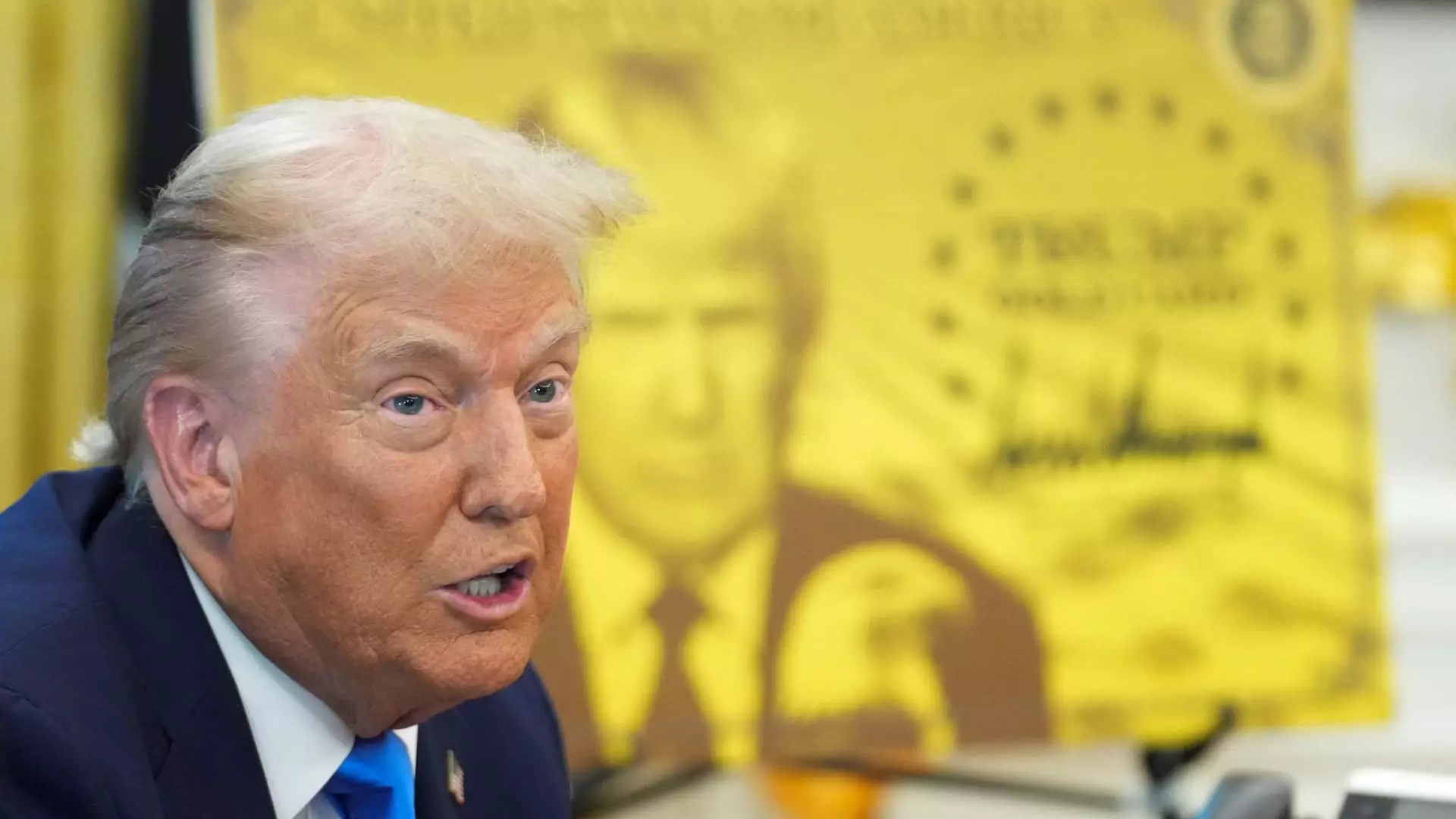The announcement by President Trump to impose a $100,000 annual fee on H-1B visas represents a seismic shift in U.S. immigration policy—one that risks unsettling the very foundations of America’s technological prowess. While the intent might be framed as protecting American workers and prioritizing domestic employment, the reality reveals a perilous tug-of-war between nationalism and innovation. This sweeping move signals a stern message: the U.S. no longer sees reliance on highly skilled foreign talent as a strategic advantage but as a liability. For tech giants and financial institutions that fuel America’s competitive edge, this constitutes an existential threat dressed as a policy correction.
The immediate repercussions have been palpable. Industry stalwarts like Amazon, Microsoft, and JPMorgan Chase—each heavily dependent on H-1B workers—are in full crisis mode. Internal advisories recommend visa holders to remain in the U.S. or risk jeopardizing their legal status, creating an atmosphere of uncertainty. These companies have built their success stories on access to the best global talent; now, they face a perilous balancing act—standby for increased costs, potential staff shortages, and a destabilized pipeline of innovation-driven talent. This isn’t just a bureaucratic hiccup; it’s a deliberate chokehold on the mechanisms that sustain America’s tech dominance.
Economic and Diplomatic Ripple Effects
The policy’s ripple effects go far beyond corporate boardrooms, affecting entire nations. India—home to a significant portion of the H-1B workforce—has expressed concern about the humanitarian consequences and the disruption to families. Meanwhile, South Korea and other nations are assessing how this policy shift might impair their highly skilled workers’ mobility and their own domestic industries. Such reactions reveal a darker reality: the move is not isolated but part of a broader strategy to reshape America’s immigration landscape, potentially stifling outbound flows of talent and international collaboration.
From an economic standpoint, this policy risks diminishing America’s capacity to innovate at a time when global competition is intensifying. Tech companies have historically thrived precisely because they could leverage diverse, highly talented workforces. We are at a crossroads where protectionist measures, no matter how well-intentioned, threaten to undermine America’s lead in research, development, and digital economy growth. Innovation is inherently a global endeavor—closed borders and exorbitant fees distort the ecosystem, pushing talent elsewhere and ceding ground to competitors like China and India, who continue to grow their technological prowess unchecked.
Counterproductive Political Rhetoric Cloaked in Nationalism
While the administration cloaks this move within the rhetoric of protecting American jobs, it ignores the fundamental economic truth: talent is not a zero-sum game. The U.S. benefits immensely from foreign expertise, especially in an era driven by technological innovation. The policy risks backfiring by incentivizing highly skilled professionals to seek more welcoming countries with more reasonable immigration pathways.
Moreover, this approach attempts a simplistic solution to complex economic challenges. Focusing solely on restricting foreign talent neglects the broader issues facing American workers, such as education gaps and strained domestic labor markets. Instead of fostering an environment conducive to growth and competition, such policies create a climate of fear and instability—nonetheless appealing to a nationalist sentiment that fails to recognize innovation as inherently integrative. The long-term costs will be measured not just in disrupted visa pipelines but in diminished American global influence, reduced competitiveness, and forfeited economic opportunity.
The Future of America’s Tech Fortunes and the Liberal Perspective
From a politically centered standpoint, the moves seem short-sighted. America’s strength has always been its openness—a mosaic of ideas, cultures, and talents. Restrictive policies like a steep visa fee threaten to reverse that advantage. The “center-right liberal” stance must recognize that true progress lies in fostering an environment where innovation and enterprise are not hamstrung by protectionism.
If the U.S. wants to sustain its technological leadership, it must strike a nuanced balance—regulating immigration without alienating the very talent that energizes its economy. Heavy-handed restrictions solve little and risk killing the goose that lays the golden eggs of American ingenuity. Instead, policymakers should focus on refining immigration policies to attract, retain, and harness global talent, ensuring the U.S. remains at the pinnacle of technological progress.
This is not about unchecked openness but about strategic control—one that respects national interests while fostering innovation. The recent policy shift signals a retreat from that balanced vision; it’s a gamble with America’s future, where the cost might be the very competitive edge that once made this nation a global leader.

